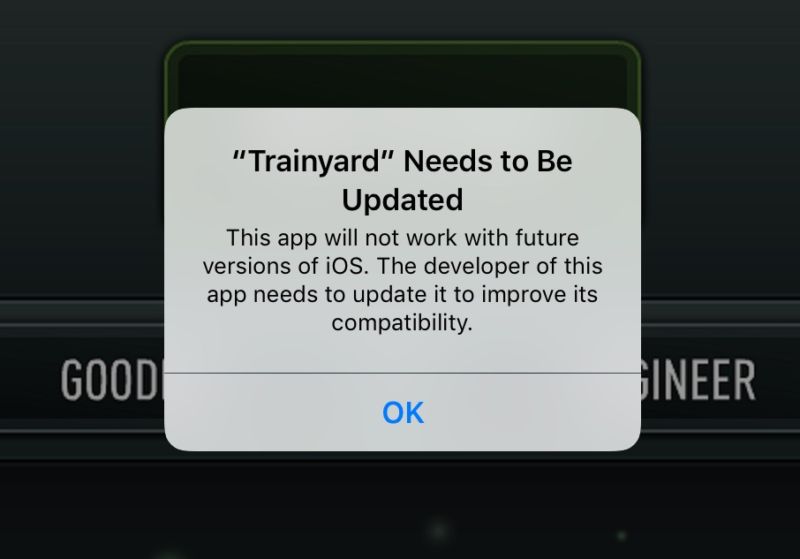Future iOS update will shut the door on apps from the dawn of the smartphone
Ars Technica 2017-01-31

Enlarge / iOS 10.3 betas generate warning messages when you run 32-bit apps. (credit: Andrew Cunningham)
Beta builds of iOS 10.3, the first of which was issued last week, generate warning messages when you try to run older 32-bit apps. The message, originally discovered by PSPDFKit CEO and app developer Peter Steinberger, warns that the apps "will not work with future versions of iOS" and that the app must be updated by its developer in order to continue running. The apps still run in iOS 10.3, but it seems likely that iOS 11 will drop support for them entirely.
Though the error message doesn't explicitly mention the app's 32-bit or 64-bit support, it's definitely only older 32-bit apps that trigger the warning. Similar messages that did explicitly mention 64-bit support were present in the betas of iOS 10.0, but they were removed in the final release of the software. Apple has required 64-bit support for all new app submissions since February of 2015 and all app update submissions since June 2015, so any apps that are still throwing this error haven't been touched by their developer in at least a year and a half (developers could add 64-bit support as early as 2013, but most of them opted not to until it became a requirement).
In part because of Apple's total control of its hardware, operating system, and app distribution platform, iOS' transition from 32-bit software to 64-bit software has been uncommonly smooth and quick. The first 64-bit edition of Windows was released in 2005, and though 64-bit Windows has usually been the default since the Windows 7 era, there's still a 32-bit version of Windows 10, and it still ships on some low-end hardware. Mac OS X (now macOS) began to build 64-bit support into the OS starting in 2003, a process that wasn't completed until 2012; current versions of the OS can still run 32-bit apps that aren't otherwise incompatible. Android's 64-bit transition is complete if you have a newer phone, but some new phones still ship with 32-bit Android, and older phones (even those that actually get software updates and have 64-bit hardware support) will continue to use 32-bit Android.